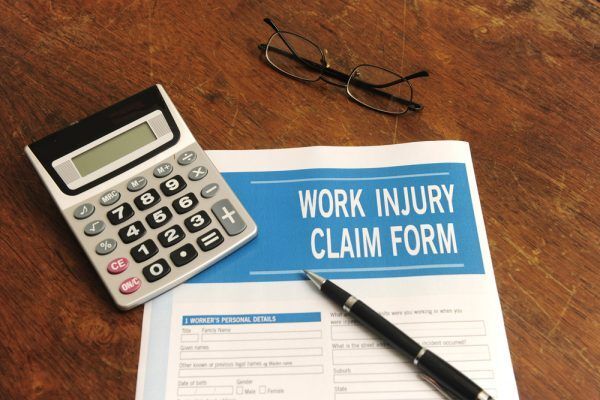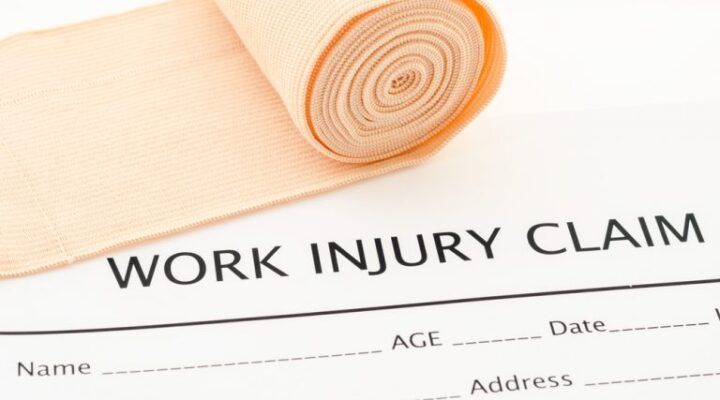The Federal Government has its own Workers’ Compensation System. Thus, a Federal Government Employee, living in California, pursue FECA claims rather than filing California workers’ compensation claim.
This article briefly details the Federal Employee’s Compensation Act (FECA) system and how it differs from the California State system. This article is cursory and not meant to be relied upon for the purposes of pursuing a claim. It is merely informational.
Who Is covered By FECA?
“The FECA program covers all civilians employed by the federal government, including employees in the executive, legislative, and judicial branches of the government. Both full-time and part-time workers are covered, as are most volunteers and all persons serving on federal juries. Coverage is also extended to certain groups, including state and local law enforcement officers acting in a federal capacity, federal jurors, Peace Corps volunteers, students participating in Reserve Officer Training Corps programs, and members of the Coast Guard Auxiliary and Civil Air Patrol.” The Federal Employees’ Compensation Act (FECA): Workers’ Compensation for Federal Employees Updated April 13, 2020, Congressional Research Service https://crsreports.congress.gov R42107
Note: There are Injured Workers who are employed by businesses with Federal Government contracts. These employees may be as a private employee and may not be eligible for a FECA claim. Instead, they are eligible to pursue a state-based workers’ compensation claim.
What Conditions are Covered Under FECA?
Under FECA, “workers’ compensation benefits are paid to any covered employee for any disability or death caused by any injury or illness sustained during the employee’s work for the federal government. There is no list of covered conditions nor is there a list of conditions that are not covered.” Supra.
Defenses available for certain injuries. The defenses include willful misconduct and intoxication as causes of the injury.
Note: These defenses are similar to that of state-based systems. In addition, state-based systems place limitations on claiming benefits on certain body parts. In California, compensation is limited with respect to the following body parts: psyche, sleep, and sexual dysfunction.
What Is the FECA Claims Process?
“All FECA claims are processed and adjudicated by OWCP (Office of Workers’ Compensation Programs.) Initial decisions on claims are made by OWCP staff based on evidence submitted by the claimant and his or her treating physician. The law also permits OWCP to order a claimant or beneficiary to submit to a medical examination from a doctor contracted to the federal government. An employee dissatisfied with a claims’ decision may request a hearing before OWCP or an OWCP review of the record of its decision. A final appeal can be made to the Employees’ Compensation Appeals Board (ECAB). The decision of the ECAB is final, cannot be appealed, and is not subject to judicial review”. Supra.
Note: in the California state-based system, there is the Workers’ Compensation Appeals Board which provides for adjudication of claims. Employers are required to maintain insurance, be self-insured, or be legally uninsured. Also, the California state-based system also allows for an employer opt-out in the form of Alternative Dispute Resolution (ADR.) In the California system, Injured Workers are capable of appealing cases up to the California Supreme Court. In very limited circumstances, there may be even access to Federal Courts.
Are There Time Limits to Filing FECA Claims?
“FECA Claims In general, a claim for disability or death benefits under FECA must be made within three years of the date of the injury or death. In the case of a latent disability, such as a condition caused by exposure to a toxic substance over time, the three-year time limit does not begin until the employee is disabled and is aware, or reasonably should be aware, that the disability was caused by his or her employment.” Supra.
Note: In California Workers’ Compensation, there are multiple time limits for filing claims. Generally, there is a one-year statute to file an Application at the Workers’ Compensation Board.
What Are the FECA Disability Payments?
The FECA system has various forms of disability payments. They include continuation of pay, partial disability payments, scheduled benefits (which are permanent partial disability payments), and total disability payments.
For the scheduled permanent partial disability payments, there is a schedule which determines the disability payments.
For total disability, there is a monthly benefit paid.
Note: The California system has salary continuation benefits for some public employees. Otherwise, there is a temporary disability rate which is essentially two-thirds of the workers’ average weekly wage. Similar to FECA, California has a permanent disability schedule which addresses the amount of payments of permanent partial disability. The California based system also has a form of total disability payment as well.
Are There FECA Death Benefits Available?
Yes. If an employee dies in the course of employment or from a latent condition caused by his or her employment, the employee’s survivors may be eligible to receive compensation benefits.
Note: The California system also has a death benefit component for dependents.
What Are Medical Benefits Under FECA?
“Under FECA, all medical costs—including medical devices, therapies, and medications— associated with the treatment of a covered injury or illness are paid for, in full, by the federal government.” Supra. “Generally, a beneficiary may select his or her own medical provider and is reimbursed for the costs associated with transportation to receive medical services.” Supra.
Note: This is different from the California system. In that system, there are medical provider networks that may impact which providers a worker can choose as their treater. California industrial medical treatment is also entirely the responsibility of the carrier and not the worker.
Does FECA Provide Vocational Rehabilitation Benefits?
“The Secretary of Labor may direct any FECA beneficiary to participate in vocational rehabilitation, the costs of which are paid by the federal government. While participating in vocational rehabilitation, the beneficiary may receive an additional benefit of up to $200 per month. However, any beneficiary who is directed to participate in vocational rehabilitation and fails to do so may have his or her benefit reduced to a level consistent with the increased wage earning capacity that likely would have resulted from participation in vocational rehabilitation.”
Note: The California system is different. Currently, for 2013 dates of injury and beyond, there is an educational voucher along with a separate job displacement benefit payment. It is markedly different from FECA.
What If I Need Advice?
If you would like a free consultation regarding workers’ compensation, please contact the Law Offices of Edward J. Singer, a Professional Law Corporation. We have been helping people in Central and Southern California deal with their workers’ compensation cases for 27 years. Contact us today for more information.



